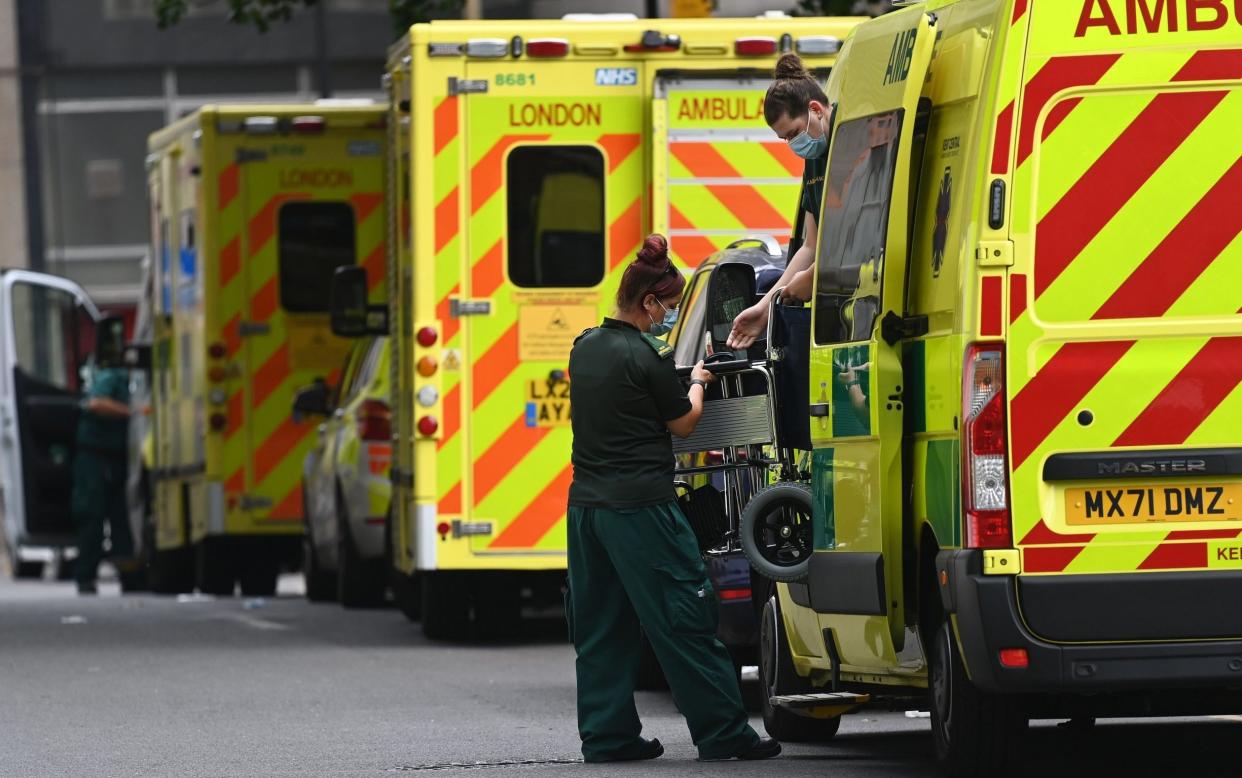Lockdown effects feared to be killing more people than Covid

The effects of lockdown may now be killing more people than are dying of Covid, official statistics suggest.
Figures for excess deaths from the Office for National Statistics (ONS) show that around 1,000 more people than usual are currently dying each week from conditions other than the virus.
The Telegraph understands that the Department of Health has ordered an investigation into the figures amid concern that the deaths are linked to delays to and deferment of treatment for conditions such as cancer, diabetes and heart disease.
Over the past two months, the number of excess deaths not from Covid dwarfs the number linked to the virus. It comes amid renewed calls for Covid measures such as compulsory face masks in the winter.
But the figures suggest the country is facing a new silent health crisis linked to the pandemic response rather than to the virus itself.
The British Heart Foundation said it was “deeply concerned” by the findings, while the Stroke Association said it had been anticipating a rise in deaths for a while.
Dr Charles Levinson, the chief executive of Doctorcall, a private GP service, said his company was seeing “far too many” cases of undetected cancers and cardiac problems, as well as “disturbing” numbers of mental health conditions.
“Hundreds and hundreds of people dying every week – what is going on?” he said. “Delays in seeking and receiving healthcare are no doubt the driving force, in my view.
“Daily Covid statistics demanded the nation’s attention, yet these terrifying figures barely get a look in. A full and urgent government investigation is required immediately.”
Figures released by the ONS on Tuesday showed that excess deaths are currently 14.4 per cent higher than the five-year average, equating to 1,350 more deaths than usual in the week ending Aug 5.
Although 469 deaths were because of Covid, the remaining 881 have not been explained and the ONS does not break down the remaining deaths by cause.
Since the beginning of June, the ONS has recorded nearly 10,000 more deaths than the five-year average – around 1,089 a week – none of which is linked to Covid. The figure is more than three times the number of people who died because of the virus over the same period, which stood at 2,811.
Even analysis that takes into account ageing population changes has identified a substantial ongoing excess.
There were 103 Covid deaths in England on August 11 and the seven-day average is currently around 111 fatalities per day.
Questioned by The Telegraph, the Department of Health admitted it had asked the Office for Health Improvement and Disparities to look into the figures and had discovered that the majority were linked to largely preventable heart and stroke and diabetes-related conditions.
Many appointments and treatments were cancelled as the NHS battled the pandemic throughout 2020 and last year, leading to a huge backlog that the health service is still struggling to bring down.
This week, an internal memo from the Royal Albert Edward Infirmary in Wigan, leaked to the Health Service Journal, warned it was becoming “increasingly common” for patients to die in A&E as they waited for treatment.
Dr Charmaine Griffiths, the British Heart Foundation chief executive, said: “We’re deeply concerned by the initial findings that excess deaths in recent months seem to be being driven by cardiovascular disease.
“Without significant help for the NHS from the Government now, this situation can only get worse.”
Last week, official England-wide statistics showed emergency care standards had hit an all-time low.
Juliet Bouvier, the Stroke Association chief executive, said: “We know people haven’t been having their routine appointments for the past few years now, so we’ve been anticipating a rise in strokes for quite a while now.
“This lack of opportunity to identify risk factors for stroke, coupled with increasing ambulance delays, is a recipe for increased stroke mortality and disability in those that survive.”

 Yahoo Movies
Yahoo Movies 
